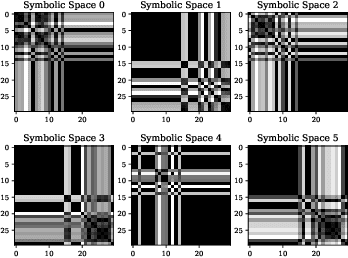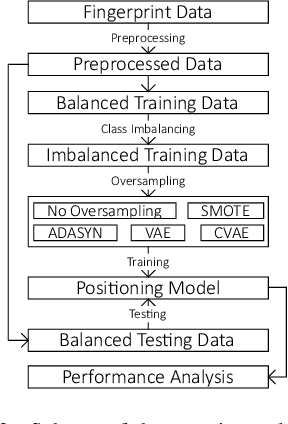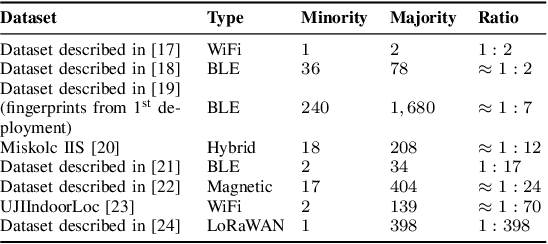Oversampling Highly Imbalanced Indoor Positioning Data using Deep Generative Models
Paper and Code
Aug 30, 2021



The location fingerprinting method, which typically utilizes supervised learning, has been widely adopted as a viable solution for the indoor positioning problem. Many indoor positioning datasets are imbalanced. Models trained on imbalanced datasets may exhibit poor performance on the minority class(es). This problem, also known as the "curse of imbalanced data," becomes more evident when class distributions are highly imbalanced. Motivated by the recent advances in deep generative modeling, this paper proposes using Variational Autoencoders and Conditional Variational Autoencoders as oversampling tools to produce class-balanced fingerprints. Experimental results based on Bluetooth Low Energy fingerprints demonstrate that the proposed method outperforms SMOTE and ADASYN in both minority class precision and overall precision. To promote reproducibility and foster new research efforts, we made all the codes associated with this work publicly available.
 Add to Chrome
Add to Chrome Add to Firefox
Add to Firefox Add to Edge
Add to Edge